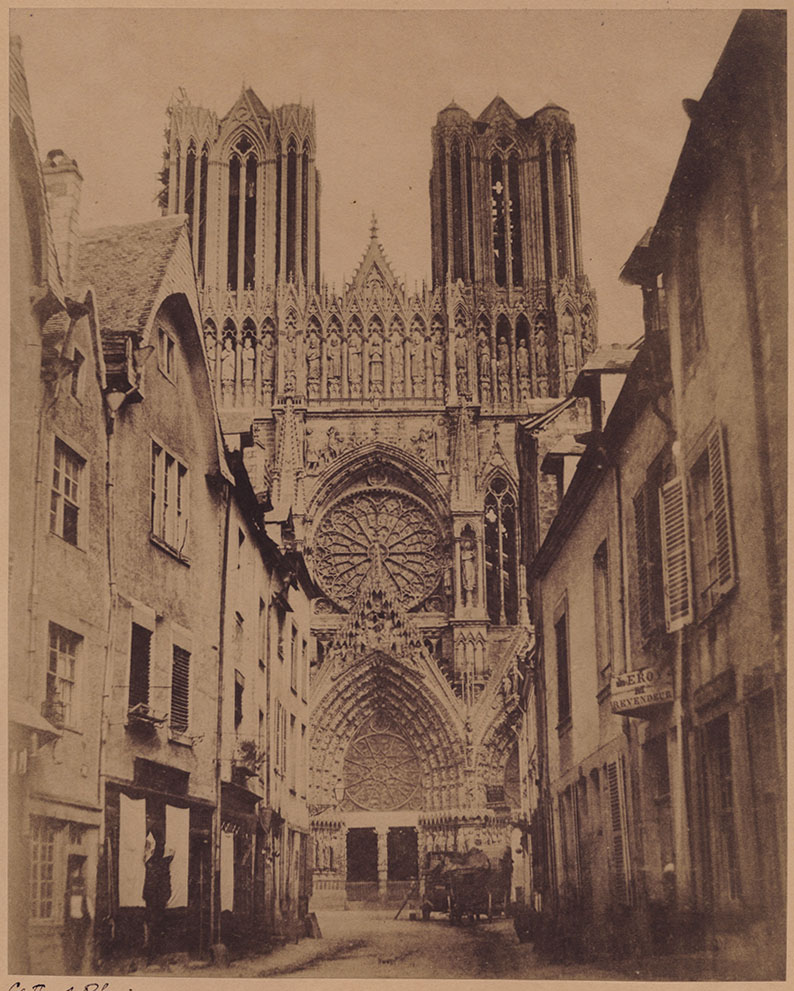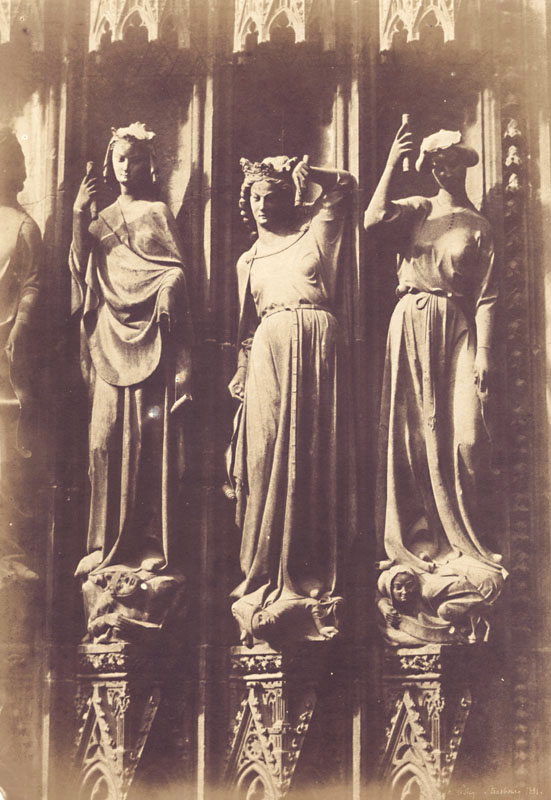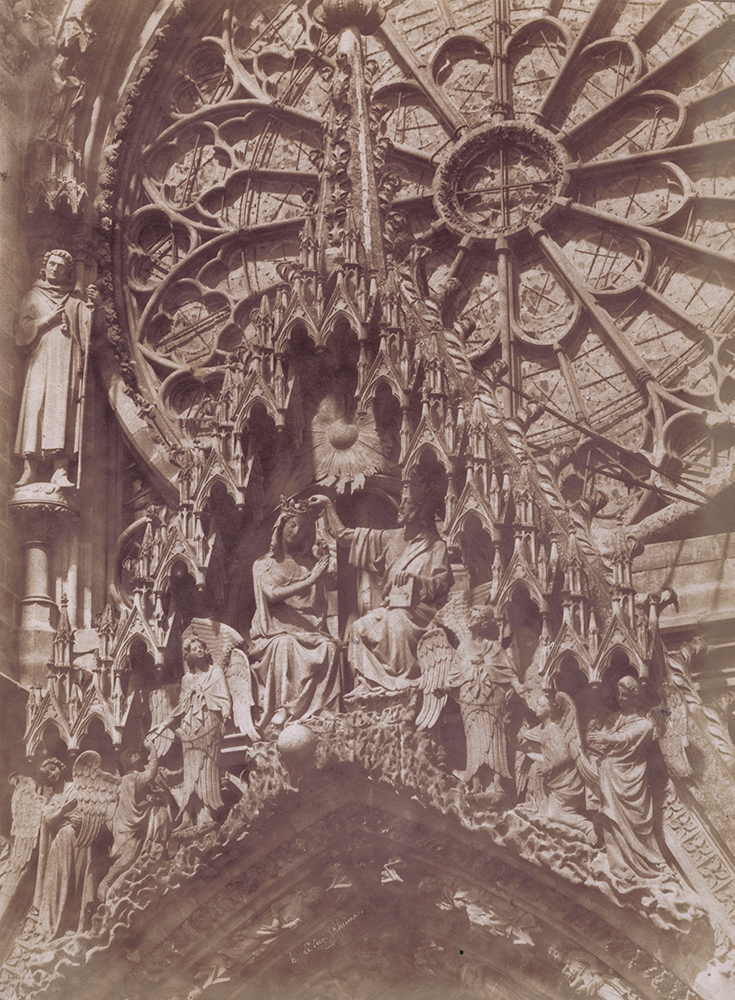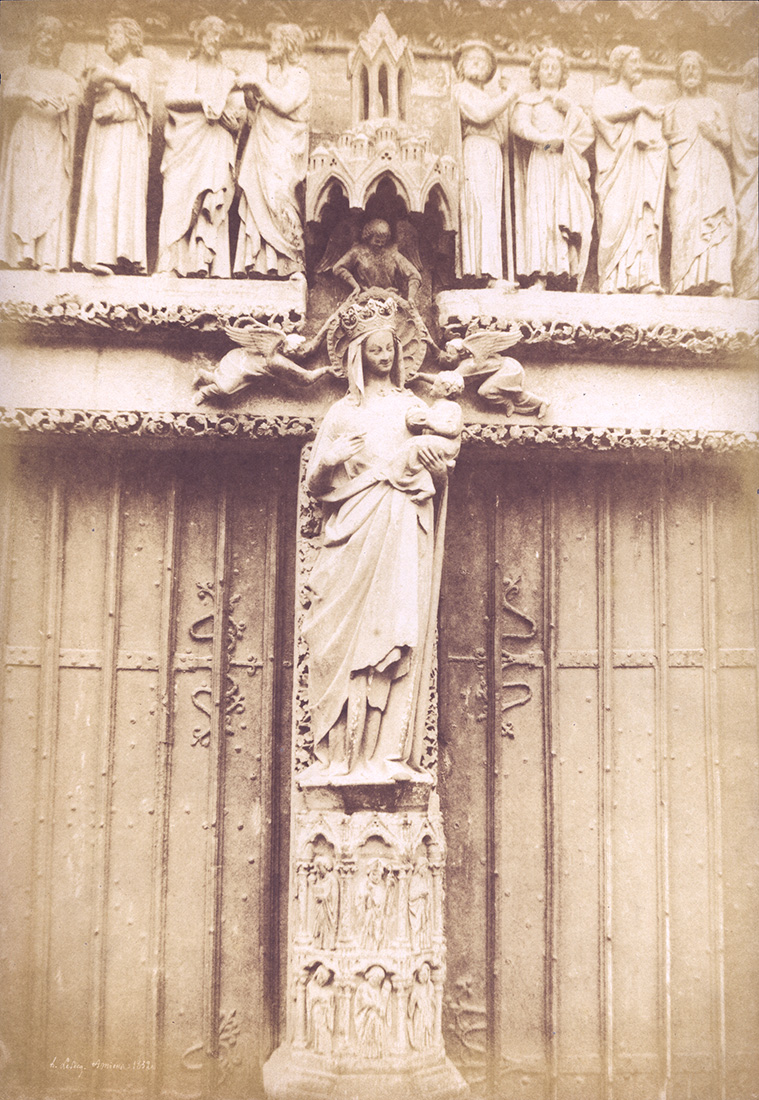 | |
Ghost image behind the first for sizing - must be here | |
 | |
Henri Le Secq … More InformationStreet Leading up to the West (Occidental) Facade of the Cathedral of Reims | $15,000 Sale $10,500 |
 | |
Henri Le Secq … More InformationAntique Terracotta Relief of an Angel Slaying a Bull | $10,000 Sale $7,000 |
 | |
Henri Le Secq … More InformationChartres (Eure-et-Loir), cathédrale Notre-Dame Portail central. Ebrasement gauche : Moïse, Samuel et David | $17,000 Sale $11,900 |
 | |
Henri Le Secq … More InformationStrasbourg (Bas-Rhin), cathédrale Notre Dame: portail de gauche, détail de trois Vertus terrassant les Vices | $15,000 Sale $10,500 |
 | |
Henri Le Secq … More InformationRuines a Tréves, (Kaiserthermen or “Emperor's Baths) | $15,000 Sale $10,500 |
About the Artist

Statuary on the North Porch of Chartres Cathedral
Henri Jean-Louis Le Secq (August 18, 1818--December 26, 1882) was a French painter and photographer. Le Secq was born in 1818 in Paris and was a son of a politician. Trained as a painter and sculptor in the studios of James Pradier and Paul Delaroche, Le Secq was a cultivated man, a collector of old master prints and medieval ironwork, and a close friend of photographers Charles Nègre and Gustave Le Gray, both of whom he had known in the studio of Delaroche, where he had first learned about photography. The Musée le Secq des Tournelles in Rouen is devoted to him.
In 1848 together with Nègre, he learned the Calotype process from Le Gray, and then a bit later learned the more refined waxed-paper negative process. Unlike his teacher, who made photography into a business enterprise, Le Secq remained an aristocratic amateur whose personal passion for architecture, quiet landscapes and humble still lifes was served by a more intimate and private vision. In 1850, he photographed Chartres and Reims.
He, along with Hippolyte Bayard, Edouard Baldus, Gustave Le Gray and O. Mestral, was sent on Missions Héliographiques to document famous architectural monuments in France. Le Secq was assigned Champagne, Alsace and Lorraine, followed by Strasbourg, Amiens, Rheims and Chartres. He worked mainly on cathedrals in Chartres, Strasbourg, Reims and Amiens. Le Secq used cameras capable of taking large photographs up to 51 cm by 74 cm (20 x 29 inches). His works during this Commission des Monuments Historiques are considered to be his most important works. In 1851 he became one of the founders of the first photographic organization of the world, unfortunately very short lived, the Société héliographique (1851–1853).
Neither a full-blown Romantic nor a dry archaeologist, Le Secq applied his artistic training and temperament to photography and to medieval art. He produced a record of Chartres Cathedral both more accurate and more poignant than any yet seen.
Between 1854-1856, he photographed artwork from the Rouen Cathedrale. Some of the salt prints produced during this period are the best preserved of Le Secq's work.
Always believing that photography was a tool for the painter, Le Secq later photographed landscapes as artists' studies. Throughout his career Le Secq only made paper negatives. He largely gave up photography after 1856, when paper negatives went out of fashion, but continued to paint and collect art. He did document some of Baron Haussman's earlier "renovations" of Paris in the 1850s. Le Secq also spent time in the port city of Dieppe, taking images of the boats and busy wharfs in 1854.
Around 1870 he started reprinting his famous works as cyanotypes as he was afraid of possible loss due to fading. He gave the reprints dates of the original negatives, some of which are still in good condition. In 1870 Le Sec had Thiel Aine and Co. publish his series on the Cathedrals at Chartre and Reims in Panotype, a form of photolithograph process. The series is quite scarce.
He also bought a large camera in 1871, apparently intending to take up photography again. He passed away in Paris the day after Christmas in 1882. His work is preserved in many institutions and collections, but in particular in the French Bibliotheque Nationale and the George Eastman House.
Henri Le Secq: Documenting Old France
Exhibited and Sold By
Vintage Works, Ltd.
258 Inverness Circle
Chalfont, Pennsylvania 18914 USA
Contact Alex Novak and Marthe Smith
Email info@vintageworks.net
Phone +1-215-518-6962
Call for an Appointment







Share This